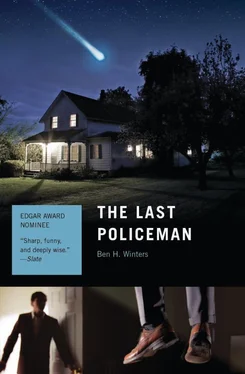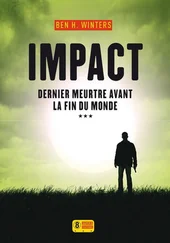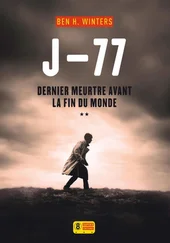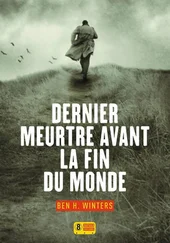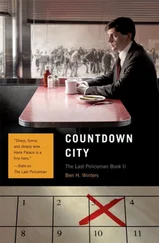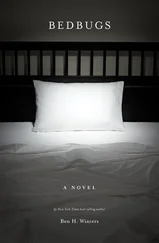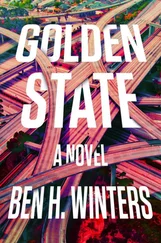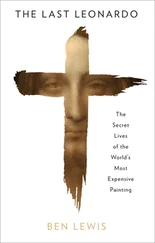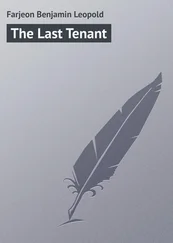I’m in my chair, at my desk, blue books arranged in a neat rectangle in front of me, trying to forget about my sister, move on with my life. A case to investigate. A man is dead.
“They’re fucking tremendous,” calls McGully from his desk, and his pronouncement is punctuated by the slam of his front chair legs hitting the floor as he leans forward. He’s got a pastrami sandwich from the Works, he’s got a napkin for a bib, spread out like a picnic blanket over his stomach. “They won’t come off for shit, not unless you latch ’em wrong. What happened? You spin out?”
“I did. Yesterday afternoon. Hit a tree.”
McGully bites his sandwich. Culverson mutters “Jesus,” but not about the accident, about something in the newspaper. Andreas’s desk is empty. Our window unit is clanking, burping out drifts of heat. Outside, on the sill, a slowly deepening shelf of new snow.
“It’s a tricky little latch on those bastards, and you really gotta keep the slack out.” McGully grins, mustard on his chin. “Don’t beat yourself up.”
“Yep. But, you know, I’ve been doing them a while. I did a winter on patrol.”
“Yeah, but were you servicing your own vehicle last winter?”
“No.”
Culverson, meanwhile, sets down his newspaper and looks out the window. I get up and start pacing. “Someone could have uncoupled them pretty easily, right? If they wanted to.”
McGully snorts, swallows a big bite of sandwich. “In the garage, here?”
“No, out in the field. While I was parked somewhere.”
“You mean—” he stares at me, lowers his voice, mock-serious, “somebody who’s trying to murder you?”
“Well—I mean—sure.”
“By unlatching your snow chains?” McGully brays laughter, hunks of pastrami erupting from his maw and bouncing off the napkin, onto the desk. “I’m sorry, kid, are you in a spy movie?”
“No.”
“Are you the president?”
“No.”
People have been trying to assassinate the president, that’s one of the deranged features of the national scene, the last three months—that’s the joke there.
I look at Culverson, but he’s still up in his head somewhere, eyes fixed on the drifting snow.
“Well, then, no offense, kid,” says McGully, “but I don’t think anybody’s trying to murder you. Nobody cares about you.”
“Right.”
“Nothing against you. Nobody cares about anything.”
Culverson stands abruptly, drops his newspaper in the garbage.
“What’s up your ass?” says McGully, craning his head around.
“The Pakistanis. They want to nuke it.”
“Nuke what?”
“Maia. They made some kind of a proclamation. They cannot leave the survival of their proud and sovereign people in the hands of the Western imperialist et cetera et cetera et cetera.”
“The Pakistanis, huh?” says McGully. “No kidding? I thought Iran were the pricks to worry about on this thing.”
“No, see, the Iranians have uranium, but no missile. They can’t fire it.”
“Pakistanis can fire it?”
“They have missiles.”
I’m thinking about my snow chains, feeling the lurch of the road spinning out from under me, remembering the shudder and the thud of impact.
Culverson’s shaking his head. “So the State Department is saying, basically, you try to nuke it, we’ll nuke you first.”
“Good times,” says McGully.
“I have a pretty clear memory of checking the chain latches,” I say, and they both look over at me. “Monday morning, first thing.”
“Jesus, Palace.”
“But, so, wait. Let’s just imagine I am a murderer. Let’s imagine there’s a detective who’s working the case, and he’s, he’s”—I pause, conscious of coloring a little—“he’s closing in on me. So I want this detective dead.”
“Yes,” says McGully, and I think for a second he’s being serious, but then he sets down his sandwich, rises slowly with a solemn expression. “Or maybe it was a ghost .”
“Okay, McGully.”
“No, I’m serious.” He comes over. His breath smells like pickles. “It’s the ghost of this hanger, and he’s so annoyed that you’re trying to pretend he got murdered, he’s trying to scare you into dropping the investigation.”
“Okay, McGully, okay. I don’t think it was a ghost.”
Culverson has pulled the Times out of the trash, he’s reading the story again.
“Yeah, you’re right,” says McGully, going back to his desk and the remainder of his lunch. “You probably forgot to latch the chains.”
* * *
Another of my father’s favorite jokes was the one he rolled out whenever people asked why we lived up in Concord, considering that he worked at St. Anselm’s, half an hour away, outside Manchester. He would reel back, astonished, and just say, “Because it’s Concord !” as if it that were explanation enough, like it’s London or Paris.
This was to become a favorite joke between Nico and me, in our years of surly teenage discontent, which for Nico have never really ended. Why couldn’t we find a place to eat a decent steak after nine p.m.? Why did every other city in New England get a Starbucks before we did?
Because it’s Concord!
But the real reason my parents stayed was for my mother’s work. She was the department secretary for the Concord police, planted behind the bullet-proof glass in the front lobby, handling visitors, calmly accepting complaints from drunks and vagrants and sex offenders, ordering a cake shaped like a semiautomatic pistol for every retiring detective.
Her salary was maybe half of my father’s income, but she’d held that job before she even met Temple Palace, and she married him only on the express condition that they would remain in Concord.
He was trying to be funny when he said “because it’s Concord!” but really, he didn’t care where he lived. He loved my mother a whole heck of a lot, was the explanation, and he just wanted to be where she was.
* * *
It’s Friday, late, coming up on midnight. The stars are gleaming dully through a gray wreath of clouds. I’m sitting on my back porch, looking out on the undeveloped acreage, former farmland, that abuts my row of townhouses.
I’m sitting here telling myself I was honest with Nico, and there’s nothing else I can do.
But she’s right, unfortunately. I love her, and I don’t want her to die alone.
Technically, I don’t want her to die at all, but there’s not much I can do about that.
It’s way past business hours, but I go inside and pick up the landline and dial the number anyway. Someone will answer. It’s never been the sort of office that shuts down for nights and weekends, and I’m sure that in the asteroid era the schedule has only gotten busier.
“Hello?” says a voice, quiet and male.
“Yeah, good evening.” Tilting my head back, taking a deep breath. “I need to speak to Alison Koechner.”
* * *
On Saturday morning I go for a jog, five miles along an eccentric route of my own invention: up to White Park, over to Main Street, and then home along Rockingham, sweat trickling down my forehead, mingling with the dusting of snow. My leg drags a little from the car accident, and there’s a tightness in my chest, but it feels good to be running, to be outdoors.
Okay. I could have forgotten to latch one of the chains on the tires, sure, I could see that. I’m hurrying, I’m anxious. Maybe I neglected to latch one. But all four?
I get home and turn on my cell phone and find that I have two service bars, and that I’ve missed a call from Sophia Littlejohn.
“Oh, no ,” I mutter, pressing the button to play the voicemail. Forty-five minutes I’d been out, an hour maybe, and it was the first time I had turned off my phone in a week, the first time since I laid eyes on Peter Zell’s body in the bathroom of the pirate McDonald’s.
Читать дальше
